My name is Joshua Hood, and I am a combat veteran, author, and current game writer for Bohemia Interactive. I am also one of the thousands of veterans who served in Iraq and Afghanistan to be diagnosed with PTSD.
Growing up, some of my best memories were playing video games with my younger brother. Back then my only job was to keep him out of trouble and make sure we were both home before the streetlights came on. We were close and I like to think that he relied on me, but all that changed in 2003 when he enlisted in the Army.
I was in my last semester of college when he dropped the news, and with the war in Iraq just kicking off I knew there was a good chance he would be going overseas. But it wasn’t the fear of combat that bothered me as much as the realization that if my brother did go to war our relationship would never be the same. So, I did what any older brother would do in that situation, I enlisted and followed him into the army.

Life as a civilian is defined by many factors: your job, your house, your feelings, but the army doesn’t care about any of that. Their job is to teach you to suffer in silence, to become a weapon of war. Free from opinions, feelings and weakness of any kind. So, it’s of little wonder that they had little time to worry about anything as bothersome as PTSD.
Reading this now it might be hard to believe, but when my brother and I left the army in 2008, PTSD wasn’t a thing. If fact it wasn’t even a blip on their radar, but you didn’t have to be a doctor to realize something was wrong with the veterans coming home. For me it felt as if I’d spent the past five years in the cab of a speeding freight train, then all of a sudden someone had slammed on the brakes, leaving me to deal will all the pent up trauma and emotion I’d stored in those cars.
The symptoms were mild at first, the hyper-vigilance that came with being in a crowd and the sudden burst of anger all easily explained. Then the panic attacks started. For those who have never had to suffer through a panic attack, it’s like being a passenger in a crazy person’s body. Seriously, one minute everything is right with the world, then in the next instant you feel like you are having a heart attack. For someone used to being in control going from zero to meltdown for no apparent reason was unnerving to say the least, but instead of getting help, I did what I’d been trained to do. I suffered in silence.

We'd been taught to suffer in silence. So that’s what we did.
There was a part of me that knew my brother was going through the same thing, but I was either too proud or too ashamed to ask him. Instead of being able to talk like we used to, we went radio silent, both of us living in denial despite the turmoil within. Just as a shark will die if it stops swimming, all we could do was keep moving forward. So, we threw ourselves into work and family—anything to avoid the face staring back at us in the mirror.
It worked for a while, then my brother took a job in Chicago and our mental separation turned physical. Having your support system living in a different time zone is the ultimate isolation and the move left me wondering if we’d ever be close again. Then in 2018 my brother began having vision and memory issues and a trip to the VA showed lesions on his brain from the IED’s he’d eaten in Iraq. The first few tests came back benign, but a later trip to a specialist confirmed our worst fears—brain cancer.
Now, I’ve been through some sticky situations in Iraq and Afghanistan, firefights where I wasn’t sure if I was going to make it out alive, but NOTHING had prepared me for the dread and utter helplessness that came with sitting in that hospital waiting room while my brother got his brain biopsied in the OR.
Talk about an instant reality check.
Fast forward to 2024 and my brother and his family have moved back home. His cancer is in remission, and we are both in therapy, but the scars of that fateful day in the hospital have yet to fade. We talk, but never about the war or the burdens we carry, and I was beginning to wonder if we ever would when fate stepped in.
I had just started working at Bohemia Interactive as a game writer on Arma Reforger and wanted to get a feel for the game before I started writing. The only problem was that when I tried to download the game, I found that it wasn’t supported on my Mac. Dammit. But as luck would have it, my brother had a brand new Xbox, so I gave him a call and he invited me over to play.
Problem solved.
Now, it is important that you understand my mindset heading over to his house. This was work and I spent the drive over compiling a mental checklist of things I needed to learn from this playtest. Sure, playing a video game with my brother had all the trappings of “fun” but I was not expecting any kind of breakthrough.
That all changed the moment we downloaded the game.
To be perfectly honest, I still struggle to explain what happened next. All I can say tell you is that the moment we started playing something changed. Perhaps it was the immersion of the presented world: the attention to detail the artists and designers breathed into everything from the Woodland patterned BDU’s to M-16 that “virtual me” was carrying that pulled me in. I don’t know, but I was hooked.
Now common sense will tell you that because this was a shooting/military simulation, the gunfire and explosions that followed SHOULD have triggered some kind of post traumatic symptom. Anxiety. Fear. Panic, you name it, but the results were the exact opposite and whatever magic was at work on that screen, it sucked us in. Instantly transporting us from my brother’s living room to the “safety” of this pixelated battlefield and instead of panic there was peace. For those of you who have never served, this won’t make ANY sense, but in a very strange way, it was like going home and in the hours that followed, that psychological wall—the invisible bastion our psyches had built to “protect” us disappeared and we actually began TALKING about the war. Healing through the community and shared experience of a video game.
By the time I left my brother’s house it was dark, and I felt a hundred pounds lighter. It was as if during that playtest, I’d finally taken off this rucksack full of the mental and psychological stones I’d collected during and after the army and left it behind. I spent the drive home trying to figure out what had just happened. The playtest had felt like therapy, but that wasn’t possible. I mean video games (especially shooting games) are bad for you, right?
The moment I got home, I fired up my computer and asked Google a simple question: do video games offer any therapeutic value to people who suffer from trauma? The first result was a VA article on a study conducted by Dr. Michelle Colder Carras, a public health researcher at Johns Hopkins. A hyperlink in the text took me to Dr. Colder Carras' ground-breaking research paper: Connection, meaning, and distraction: A qualitative study of video game play and mental health recovery in veterans treated for mental and/or behavioral health problems.
The next day, I reached out to the team at Bohemia Interactive to share my findings and together we reached out to Dr. Carras, Dr. Rachel Kowert, an award winning author and globally recognized researcher on the uses and effects of digital games as well as Stephen Machuga, a veteran and CEO of the nonprofit StackUp who was already getting video games out to veterans in need. In the following articles we will explore what we learned through these interviews and dive into how video games can help alleviate mental health issues, build stronger social communities and better serve those veterans in need.
— Don't Fight Alone
These articles are part of our Don't Fight Alone initiative to raise awareness about the benefits of video games for mental health and what can be done to help veterans in need. To create more of a safe space for players in the Arma community, will award a prize of $3,000 to mods that help reduce toxicity, encourage positive in-game communication, and/or directly help veterans suffering from physical and emotional trauma. We are also partnering with Stack Up to help support veterans through video games. We would encourage everyone to visit StackUp.org and consider donating, and also strongly recommend their support services if you or anyone else you know is a veteran suffering from trauma post-deployment.
We want to help veterans and anyone suffering from mental health issues through our platform and create a supportive and positive environment for all Arma Reforger players.
You don't have to fight alone.
To support veterans through the Don't Fight Alone initiative, you can donate to Stack Up here: https://tiltify.com/+arma-platform/dont-fight-alone
If you or anyone you know is a veteran in need of help, visit the Stack Up Discord at https://discord.com/invite/StackUpDotOrg







